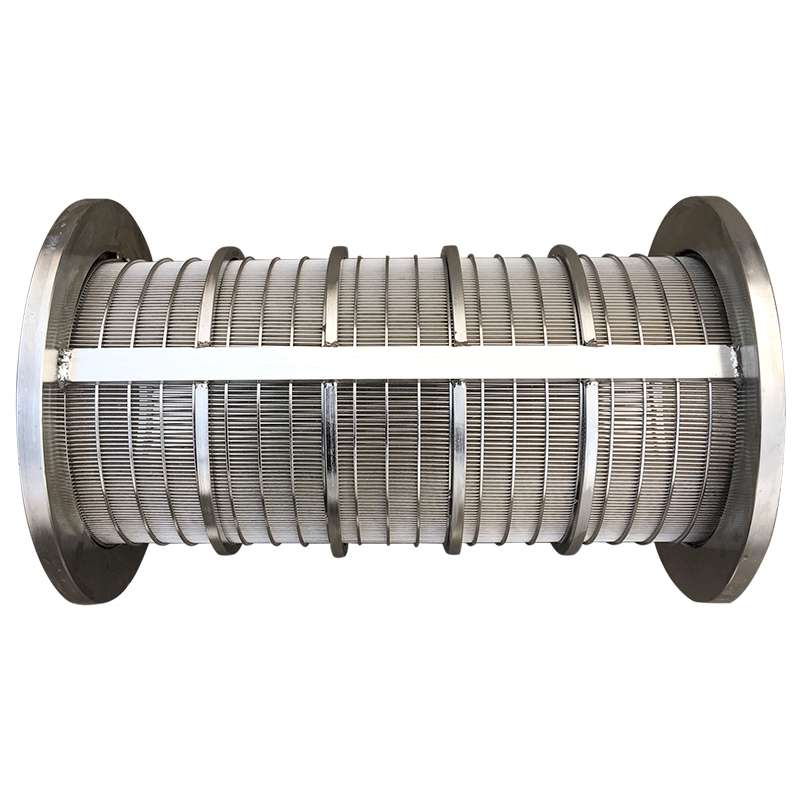Yubo's custom-made
wedge-shaped wire filter is specially used for sludge dewatering.
A sludge treatment method that removes water from flowing primary, concentrated or digested sludge and converts it into semi-solid or solid sludge. The moisture content of the dewatered sludge can be reduced to 55% to 80%, depending on the nature of the sludge and bottom sludge and the efficiency of the dewatering equipment. The further dehydration of the sludge is called sludge drying, and the moisture content of the sludge after drying is less than 10%. The dehydration methods mainly include natural drying method, mechanical dehydration method and granulation method. Natural drying method and mechanical dehydration method are suitable for sewage sludge. The granulation method is suitable for coagulation and sedimentation of sludge.

Residual activated sludge discharged from the secondary sedimentation tank of a domestic sewage plant.
Sludge classification: it belongs to hydrophilic fine-grained organic sludge, with poor compressibility and dewatering performance.
The physical and chemical sludge discharged from the sedimentation tank or thickening tank of the water plant.
Sludge classification: It belongs to medium and fine-grained organic-inorganic mixed sludge, with general compressibility and dewatering performance.
The physicochemical and biochemical mixed sludge discharged from the industrial wastewater treatment thickening tanks of paper mills, printing and dyeing plants, cloth washing plants, petrochemical plants, organic chemical plants, meat plants, breweries and other industrial wastewater treatment plants.
Sludge classification: It is a medium-fine mixed sludge. The fiber body has good dehydration performance, and other compressibility and dehydration performance are average.
The physical and chemical fine-grained sludge produced by the physical and chemical methods discharged from the thickening tanks of industrial wastewater from electroplating plants and circuit board plants.
